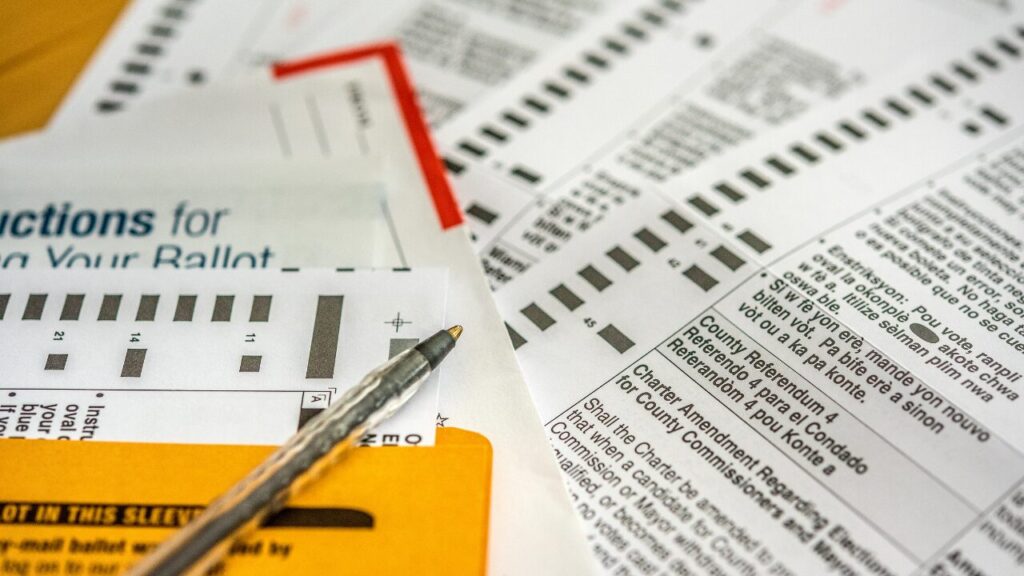
Technology has become an integral part of the modern electoral process, transforming how elections are conducted, how voters engage, and how results are tabulated. While technology offers significant benefits, such as increased accessibility and efficiency, it also presents challenges, including concerns about cybersecurity and the integrity of election results. This article will explore the role of technology in modern elections, the benefits and challenges it brings, the impact of digital campaigning and social media, and the future trends that may shape the voting process.
The Integration of Technology in Elections
Electronic Voting Machines
One of the most visible uses of technology in elections is electronic voting machines (EVMs). These machines have replaced traditional paper ballots in many jurisdictions, offering a quicker and more streamlined voting process. EVMs come in various forms, including:

- Direct Recording Electronic (DRE) Systems: Voters select their choices on a touchscreen, and the machine records the votes electronically.
- Optical Scanners: Voters fill out a paper ballot, which is then scanned and recorded electronically.
- Ballot-Marking Devices: These devices assist voters, especially those with disabilities, in marking a paper ballot, which is then scanned or counted manually.
Benefits:
- Efficiency: EVMs can speed up the voting process and reduce the time it takes to count votes.
- Accessibility: They provide options for voters with disabilities, such as audio ballots or adjustable screens.
Challenges:
- Security: EVMs are vulnerable to hacking and other forms of cyber interference if not properly secured.
- Trust: Some voters are concerned about the accuracy and reliability of electronic voting systems, preferring paper ballots as a more transparent option.
Online Voter Registration and Voting
Technology has also revolutionized voter registration, with many states offering online voter registration. This has made the registration process more accessible and convenient, especially for younger voters who are more comfortable with digital platforms.
Benefits:
- Accessibility: Online registration removes barriers for those who may have difficulty accessing traditional registration sites.
- Convenience: Voters can register or update their information from the comfort of their homes.
Challenges:
- Security: Online systems are targets for cyberattacks, which can compromise voter data or disrupt the registration process.
- Digital Divide: Not all voters have equal access to the internet, potentially disadvantaging certain groups.
Vote Counting and Tabulation
Modern elections rely on technology for the swift and accurate counting of votes. Automated systems can tally results much faster than manual counting, and in many cases, they provide a higher degree of accuracy.
Benefits:
- Speed: Results can be tabulated quickly, often within hours of polls closing.
- Accuracy: Automated systems reduce human error in the counting process.
Challenges:
- Transparency: Voters may have less confidence in results that are processed through complex algorithms rather than simple manual counts.
- Malfunction Risk: Technical issues or malfunctions can delay results or lead to inaccuracies if not properly managed.
The Impact of Social Media and Digital Campaigning
Digital Campaigning

Social media and digital platforms have transformed how candidates campaign and how voters receive information. Campaigns now have the ability to target specific demographics with tailored messages through platforms like Facebook, Twitter, and Instagram.
Benefits:
- Reach: Campaigns can reach a larger audience, including younger voters who are more likely to engage with digital content.
- Targeted Messaging: Candidates can tailor their messages to specific groups, increasing the relevance and effectiveness of their outreach.
Challenges:
- Misinformation: The rapid spread of misinformation and fake news on social media platforms can mislead voters and influence election outcomes.
- Privacy Concerns: The use of data analytics to target voters raises concerns about privacy and the manipulation of public opinion.
The Role of Social Media in Voter Behavior
Social media plays a significant role in shaping voter behavior and perceptions. Voters increasingly rely on social media for news and information about candidates and issues, making it a powerful tool in modern elections.
Benefits:
- Engagement: Social media encourages political engagement and discussion, making it easier for voters to participate in the democratic process.
- Awareness: It helps raise awareness of issues and candidates, especially among younger voters who may not engage with traditional media.
Challenges:
- Polarization: Social media can create echo chambers where users are exposed only to viewpoints that align with their own, increasing political polarization.
- Influence of Algorithms: Algorithms prioritize content that generates engagement, which may not always be accurate or balanced.
Future Trends in Election Technology
Blockchain Voting
Blockchain technology is being explored as a way to create a more secure and transparent voting process. Blockchain’s decentralized and tamper-resistant nature could address many of the security concerns associated with electronic voting systems.
Potential Benefits:
- Security: Blockchain’s encryption and decentralization make it extremely difficult for hackers to alter votes.
- Transparency: Voters could verify that their votes were recorded and counted accurately without revealing their choices.
Potential Challenges:
- Complexity: Implementing blockchain voting on a large scale would require significant technological infrastructure and education.
- Access: Ensuring that all voters have access to and understanding of blockchain technology could be a significant hurdle.
Remote Voting and Mobile Apps

The future may see more widespread adoption of remote voting options, including mobile apps that allow voters to cast their ballots from anywhere. This could increase voter turnout, particularly among younger and more mobile populations.
Potential Benefits:
- Convenience: Mobile voting would make it easier for people with busy schedules or limited access to polling places to vote.
- Increased Turnout: Easier access to voting could lead to higher voter participation rates.
Potential Challenges:
- Security: Ensuring the security of remote and mobile voting is paramount, as these systems could be vulnerable to cyberattacks.
- Equity: Ensuring equal access to reliable technology is necessary to prevent disenfranchising voters without access to smartphones or the internet.
Conclusion
Technology has undoubtedly transformed the way elections are conducted, offering new opportunities for efficiency, accessibility, and engagement. However, these advancements also come with challenges that must be addressed to ensure the security, integrity, and fairness of the electoral process. As we look to the future, it’s essential to balance the benefits of new technologies with the need to protect the democratic principles that underpin our elections. By staying informed and involved, voters can help shape the future of election technology and ensure that it serves the best interests of all citizens.
Brent is the Managing Partner of CatchMark Technologies and a seasoned technologist with over 25 years of experience in IT leadership, cybersecurity, and technical operations. He began his career serving in the U.S. Army, where he worked extensively with electronics—laying the foundation for his lifelong passion for technology and problem-solving. Brent holds a Certified Information Systems Security Professional (CISSP) certification and currently leads CatchMark’s Cybersecurity and Tech Support teams. Known for his strategic thinking and hands-on expertise, he excels in guiding secure, scalable solutions and driving innovation across complex technical environments.
Must See
-


Arts/Entertainment
/ 3 hours agoWhite Lake Live Music: June 23–29 Lineup
It’s a big week for local music fans! 🎶 Eight Whitehall and Montague venues...
By Amy Yonkman -


Community
/ 2 days agoHunters and Anglers: Urban Deer Hunting in Whitehall and Montague
WHITEHALL & MONTAGUE, MI — As deer populations continue to rise across West Michigan,...
By Kara Raeth -


Community
/ 2 days agoStay Safe This Summer on Lake Michigan and White Lake
As summer heats up in the White Lake area, more people are heading to...
By Kara Raeth















